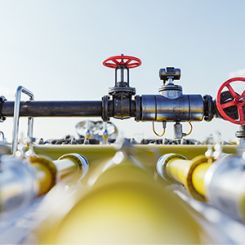Recruiting Young Workers Series
Hydraulic Institute
08/16/2017
Editor's Note: The difficulty of recruiting young workers to the pumps industry is an issue echoed in both our reader surveys and discussions with industry leaders. Despite these concerns, there are many up-and-coming employees who are committed to making a career in the industry. Jesse Salas’s story is the second installment of a five-part Pumps & Systems series highlighting some of the bright young people taking on pumps careers in 2017. Read other parts of this series and our "Pump Industry Employment Analysis" here.
 Jesse Salas
Jesse Salas
Read other parts of this series and our "Pump Industry Employment Analysis" here.

